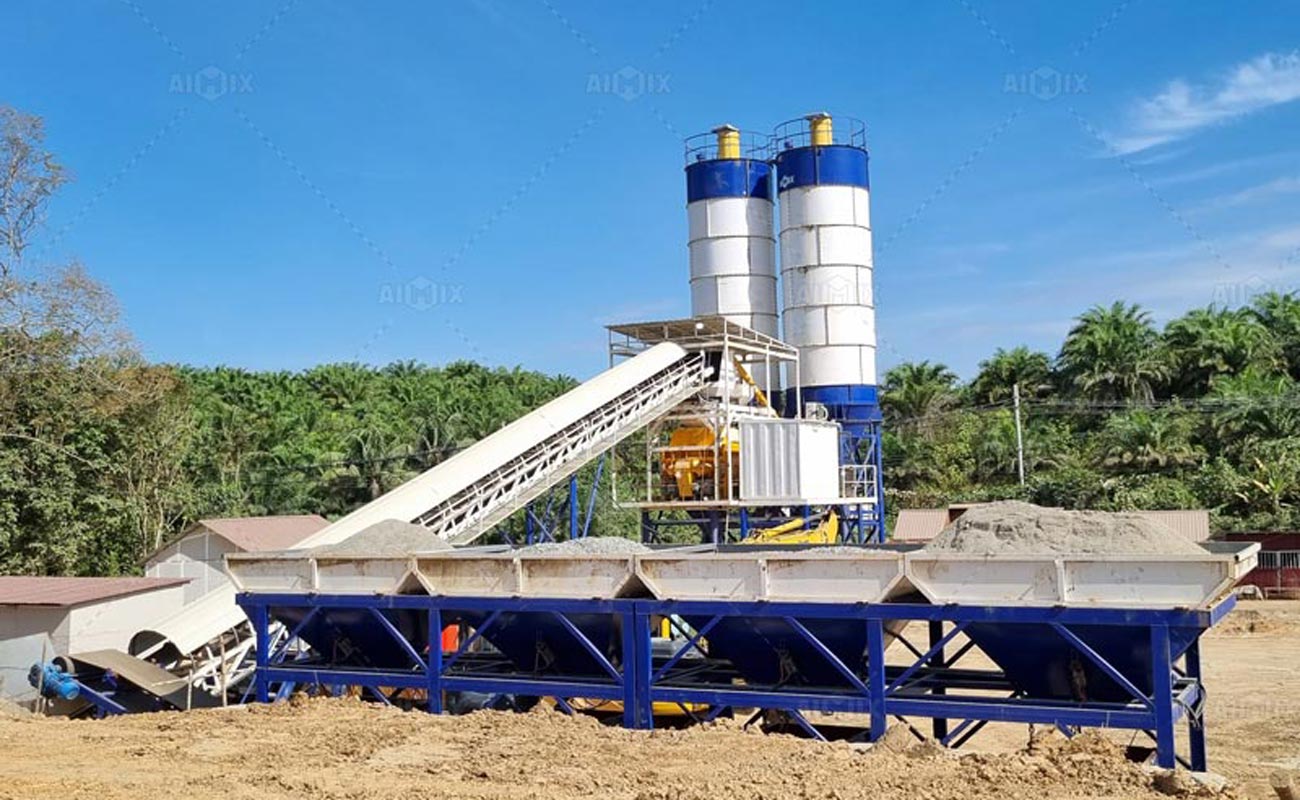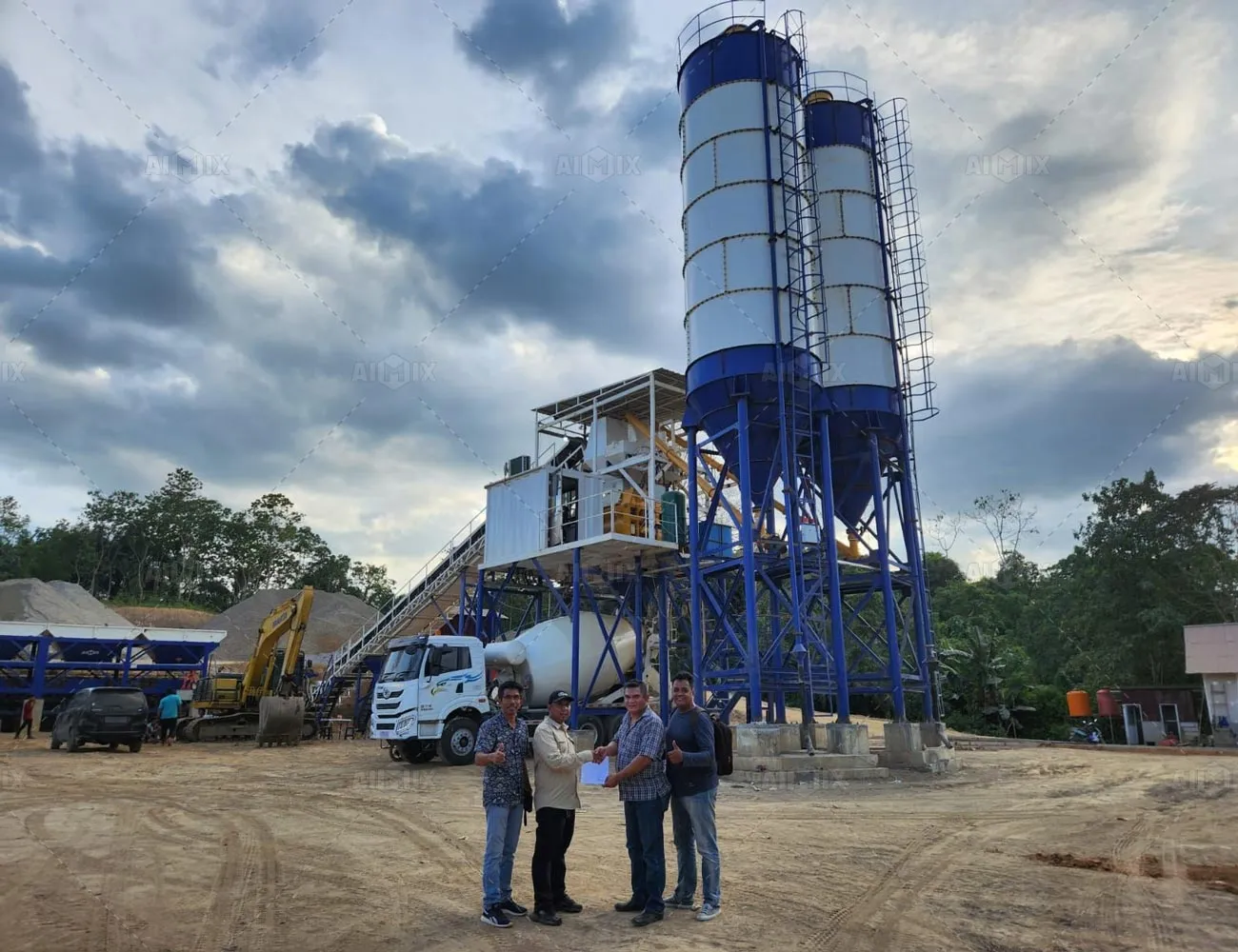Concrete batching plants have become integral to the construction of modern highways and bridges. Their introduction and evolution have not only streamlined the construction process but have also significantly enhanced the quality, durability, and efficiency of these critical infrastructures. This article explores the transformative impact that concrete batching plants have had on highway and bridge construction, highlighting their role in revolutionizing the industry.

The Evolution of Concrete Batching Plants
Before the advent of modern concrete batching plants, the production of concrete was a labor-intensive and time-consuming process. Workers would mix concrete manually or with rudimentary equipment, which often resulted in inconsistencies in the quality of the concrete produced. The introduction of batching plants marked a turning point in construction, allowing for the production of large volumes of high-quality concrete with remarkable precision and consistency.
Concrete batching plants are designed to automate the process of measuring, mixing, and producing concrete, ensuring that the exact proportions of raw materials (cement, aggregates, water, and additives) are used every time. This automation not only reduces the risk of human error but also increases the speed at which concrete can be produced, enabling large-scale projects like highways and bridges to be completed more efficiently.
Enhancing Quality and Durability
One of the most significant ways that concrete batching plants have transformed highway and bridge construction is by improving the quality and durability of the concrete used. Highways and bridges are subjected to extreme environmental conditions, heavy traffic loads, and significant wear and tear. Therefore, the quality of the concrete used in these structures is critical to their longevity and performance.
Batching plants allow for precise control over the mix design of concrete, ensuring that the correct ratios of ingredients are used. This control is essential for producing concrete that meets the specific strength and durability requirements for highways and bridges. Additionally, the consistency achieved through batching plants ensures that each batch of concrete is of uniform quality, reducing the likelihood of weak spots or defects in the finished structure.
Moreover, modern batching plants often include advanced features such as moisture sensors, which adjust the water content in the mix to account for variations in the moisture levels of aggregates. This ensures that the concrete produced has the optimal water-cement ratio, which is crucial for achieving the desired strength and workability. Aimix, as a professional and reliable supplier, offers high quality and durable concrete plants to suit different construction projects requirements.

Efficiency in Construction
The efficiency gains brought about by concrete batching plants cannot be overstated. In highway and bridge construction, time is often of the essence. Projects are typically large-scale, with tight deadlines and significant logistical challenges. The ability to produce concrete quickly and efficiently on-site or near the construction site is a major advantage.
Concrete batching plants are capable of producing large volumes of concrete in a short amount of time, which is particularly beneficial for projects that require continuous pouring of concrete, such as the construction of bridge decks or highway pavements. This continuous production capability reduces downtime and ensures that construction crews can work without interruptions, leading to faster project completion times.
In addition to speed, batching plants also contribute to cost efficiency. By producing concrete on-site or close to the site, transportation costs and delays associated with delivering concrete from off-site locations are minimized. This not only saves money but also reduces the risk of concrete setting prematurely during transit, which can compromise its quality.
Innovation and Technology in Modern Batching Plants
The construction industry has seen significant advancements in technology, and concrete batching plants are no exception. Both mobile and stationary modern batching plants are equipped with state-of-the-art control systems that allow for real-time monitoring and adjustments to the mixing process. These systems can be programmed with specific mix designs and can automatically adjust the proportions of ingredients based on real-time data, such as the ambient temperature or the moisture content of the aggregates.
Moreover, the integration of GPS and telematics systems in batching plants has improved the logistics of concrete production and delivery. Construction managers can track the production and delivery of concrete in real-time, ensuring that the right amount of concrete is available at the right time and place, which is critical for large-scale projects like highways and bridges.
Another innovation that has had a significant impact is the development of mobile concrete batching plants. These plants can be easily transported and set up on-site, making them ideal for remote or large-scale projects where establishing a permanent plant would be impractical. Mobile batching plants provide the same level of precision and efficiency as stationary plants, further enhancing the flexibility and capability of construction teams.
Case Studies: Concrete Batching Plants in Action
The transformative impact of concrete batching plants can be seen in numerous highway and bridge projects around the world. For example, the construction of the Hong Kong-Zhuhai-Macao Bridge, one of the longest sea-crossing bridges in the world, relied heavily on the use of advanced concrete batching plants. The ability to produce high-performance concrete on-site was crucial for the construction of this massive infrastructure, which required concrete that could withstand harsh marine environments.
Similarly, the construction of the Interstate Highway System in the United States benefited from the widespread use of concrete batching plants. The ability to produce large quantities of consistent, high-quality concrete was essential for building the extensive network of highways that now spans the country.
Concrete batching plants have fundamentally transformed the construction of highways and bridges, bringing about significant improvements in the quality, efficiency, and durability of these structures. The precision and automation provided by batching plants ensure that the concrete used in these projects meets the highest standards, while their efficiency and technological advancements have enabled faster project completion and cost savings. As the construction industry continues to evolve, concrete batching plants will undoubtedly remain at the forefront of innovation, driving further improvements in the way we build the infrastructure that connects and supports our communities.